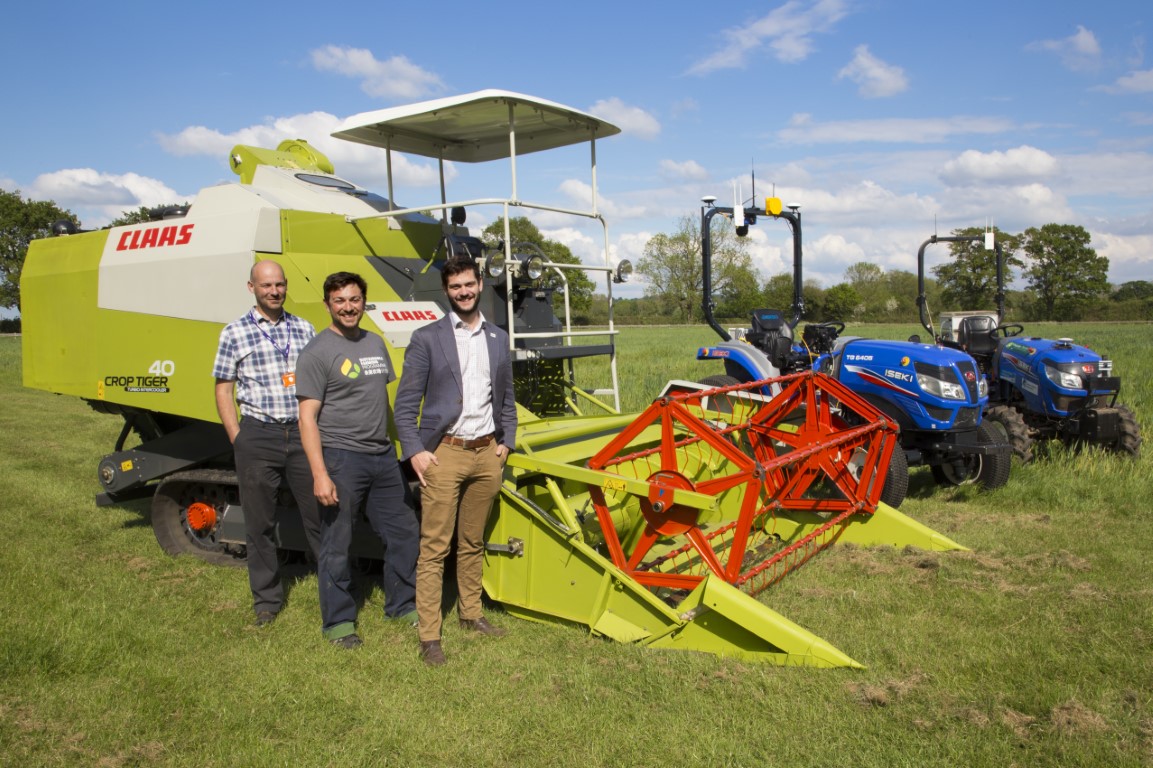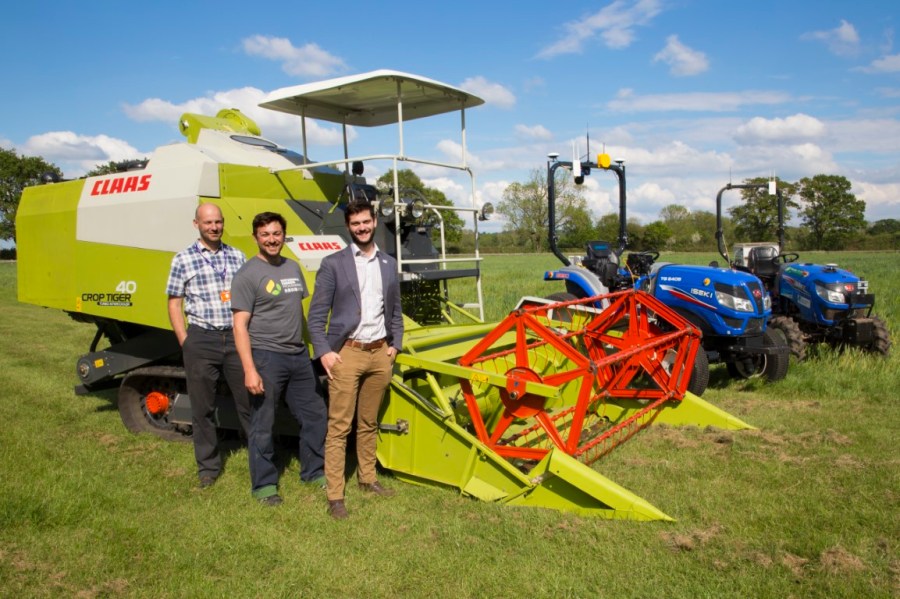 Hands-Free Hectare, the joint project run by Harper Adams University and Precision Decisions, is growing to become a 35ha farm, courtesy of funding from Innovate UK. CPM reports.
Hands-Free Hectare, the joint project run by Harper Adams University and Precision Decisions, is growing to become a 35ha farm, courtesy of funding from Innovate UK. CPM reports.
The project, which started in 2016, aimed to be the first in the world to grow, tend and harvest a crop without tractor operators or agronomists on the ground. It has already had two successful harvests, winning a number of awards.
The new farm, based at the university’s campus in Shropshire, will be a three-year project, and brings in a third partner; the UK division of Australian precision agriculture specialist Farmscan AG.
And the Agricultural Engineering Precision Innovation Centre (Agri-Epi Centre) is providing the team with development space and project management support.
Multiple crops
Jonathan Gill, mechatronics researcher at the university said: “This time, we’re planning to grow three different combinable crops across 35ha.
“We’re moving past the feasibility study which the hectare provided us with, to a vision of the future of farming.
“We want to prove the capability and ability of these systems in reducing the levels of soil compaction and precision application.”
The farm seeks to solve problems like fleet management and swarm vehicle logistics and navigation, explained Martin Abell, mechatronics engineer at Precision Decisions.
“We still believe that smaller vehicles are best, so we’ll be using up to three small tractors for the project, including our original ISEKI tractor, and a CLAAS combine will be joining our old Sampo.
Real world situation
“This time, we’re moving away from the perfect hectare and to real world situations. The fields will be irregular, there’ll be obstacles, undulating land and pathways.
“Precision Decisions will be handling vehicle and data management through our MiFarm platform.”
Kit Franklin, senior agricultural engineering lecturer, added: “We want the farm to become a testbed for agricultural innovation. Once the farm’s established, we’ll be encouraging companies to come and test and evaluate their technologies.
“It’s also great that the project will remain on the university campus, so that students will be able to learn from it, watch our progress and see how dynamic and innovative the agricultural engineering industry is.”
Precision control
Farmscan AG will work to integrate existing industry-proven technology with a developing autonomous platform to provide precision control across the farm.
“Our goal is to have multiple small unmanned vehicles working together seamlessly in the same fields, all remotely monitored and completing all the tasks you would expect in a commercial farm,” said business development manager Callum Chalmers.
“Navigating roads and pathways between fields is an exciting new challenge; we want to face real world conditions, where fields aren’t often in one place and it’s a necessity to travel between them.”
Additional elements to the project include an economic outputs study and a final evaluation by partner farmer David Blacker.




